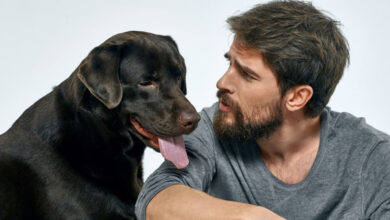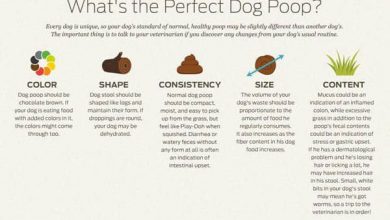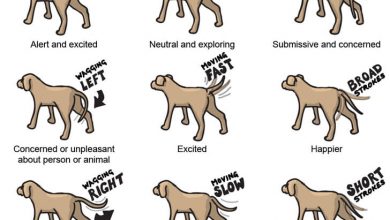How Do I Know If My Dog Is Producing Milk

1. Introduction
It is important to know if your dog is producing milk or not, as it can indicate the presence of a pregnancy or a medical condition. Knowing whether or not your dog is producing milk can help you provide better care for her and her puppies if she is pregnant, or get her the medical attention she needs if she is not. In this article, we will discuss how to tell if your dog is producing milk and the physical and behavioral changes that may occur in nursing dogs.
2. Signs of Dog Pregnancy
The first step in determining if your dog is producing milk is to determine if she is pregnant. There are several signs that can indicate pregnancy in dogs: enlarged nipples, weight gain, increased appetite, and changes in behavior such as nesting behavior. If you suspect your dog may be pregnant, it’s important to visit your veterinarian for a confirmation and to receive advice on proper care during the gestation period.
3. Milk Production in Dogs
Once confirmed that your dog is pregnant, you can expect her to start producing milk around the fifth or sixth week of gestation. The mammary glands will swell and become more prominent as they prepare for lactation. During this time, you may also notice that your dog’s nipples are darker and larger than usual.
4. How to Tell if Your Dog is Producing Milk
The easiest way to tell if your dog is producing milk is by gently pressing on her mammary glands with your fingers. If there is any fluid present, it will likely be clear or slightly yellowish in color and have a milky consistency. You may also notice a slight increase in temperature around the mammary glands as they prepare for lactation.
5. Physical Changes in Nursing Dogs
Once your dog begins lactating, you may notice some physical changes such as an increase in weight due to the extra calories needed for milk production, an increase in appetite due to the extra calories needed for milk production, and a decrease in activity level due to fatigue from nursing and caring for puppies. Additionally, the mammary glands will become more prominent as they fill with milk.
6. Behavioral Changes in Nursing Dogs
Nursing dogs often exhibit certain behaviors such as increased vocalizations when puppies are present, increased licking of puppies, and protective behaviors towards their puppies such as growling at other animals or humans who come too close. Nursing dogs may also show signs of anxiety when separated from their puppies for extended periods of time and may become aggressive when protecting their puppies from perceived threats.
7. The Role of a Veterinarian
It is important to consult with your veterinarian throughout the nursing process to ensure that your dog’s health and wellbeing are being monitored closely during this time. Your veterinarian can provide advice on diet and nutrition for nursing dogs, exercise recommendations, and any other health concerns that may arise during this period of time.
8. Diet and Nutrition for Nursing Dogs
Nursing dogs require an increased amount of calories to support both themselves and their puppies during this period of time so it’s important to provide them with a balanced diet that includes high-quality proteins, carbohydrates, fats, vitamins, minerals, and water. It’s also important to provide nursing dogs with plenty of rest so they have enough energy to care for their puppies throughout the day.
9 . Exercise for Nursing Dogs
Although exercise should be kept light during this period of time due to fatigue from nursing and caring for puppies , it ’ s still important for nursing dogs to get regular exercise . This can include walks , playtime , swimming , etc . Exercise helps keep nursing dogs healthy by keeping their muscles strong , stimulating circulation , improving digestion , boosting immunity , etc .
< h 2 > 10 . Common Questions about Nursing Dogs < / h 2 >
There are many common questions about nursing dogs that pet owners have including : how often should I feed my nursing dog ? What kind of food should I feed my nursing dog ? How much exercise should my nursing dog get ? Is there anything I need to do differently while my dog is nursing ? All these questions can be answered by consulting with a veterinarian who specializes in canine nutrition .
< h 2 > 11 . Conclusion < / h 2 >
Knowing whether or not your dog is producing milk can help you provide better care for her and her puppies if she is pregnant , or get her the medical attention she needs if she is not . By recognizing the signs of pregnancy , understanding how milk production works in dogs , looking out for physical changes in nursing dogs , observing behavioral changes in nursing dogs , consulting with a veterinarian about diet and nutrition for nursing dogs , providing adequate exercise for nursing dogs , and having answers to common questions about nursing dogs , you can ensure that your pup gets all the care she needs during this special time .




